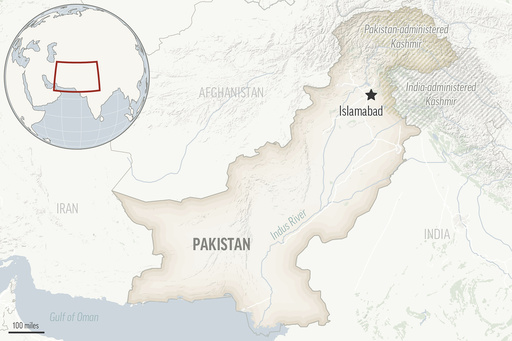QUETTA, Pakistan — In a significant escalation of violence, Pakistani military forces engaged in intense confrontations with insurgents who had set up roadblocks in the troubled northwestern province of Balochistan. Officials reported that the clashes resulted in the deaths of 18 paramilitary personnel and 23 fighters, marking some of the most severe exchanges in recent years.
According to military sources, the troops faced casualties while confronting rebels who had blocked a crucial highway in Kalat, a region close to the Afghan border. The military announced that they “successfully removed the roadblock” after overnight combat that extended into Saturday morning.
They stated that 18 members of the security forces lost their lives during the engagements and pledged that those responsible for this “heinous and cowardly act” would be held accountable. The military also reported that the bodies of 12 insurgents were recovered, with operations continuing as another 11 insurgents were eliminated during the ongoing action.
The violent incidents prompted strong reactions from President Asif Ali Zardari, Prime Minister Shehbaz Sharif, and various provincial leaders in Balochistan, who condemned the attacks and commended the security forces for their efforts in countering the “terrorists.” Both leaders reiterated that operations will persist in Balochistan until insurgent threats are completely neutralized.
The Baloch National Army (BLA) separatist group claimed responsibility for the attacks, stating that their operatives made significant advancements in the Kalat engagements, achieving their designated objectives. The group also asserted that insurgents had launched an assault on a military post in the region.
The BLA has a history of targeting military personnel, civilians, and foreign nationals, particularly Chinese workers involved in multibillion-dollar projects in Pakistan. In November, a suicide bomber associated with the BLA detonated explosives at a train station in Quetta, resulting in the deaths of 26 individuals, including both soldiers and railway staff.
In response to these heightened threats, military and police forces have increased their operations against insurgents in Balochistan, a province rich in oil and minerals. This region serves as a center for the country’s ethnic Baloch community, who claim to face discrimination and exploitation by the central government.
Balochistan has been grappling with a prolonged insurgency for years, with multiple separatist factions launching attacks aimed primarily at security forces in their bid for autonomy. The province is also home to various militant organizations that operate within its borders.
Furthermore, the BLA reportedly receives support from the Pakistani Taliban, known as Tehreek-e-Taliban Pakistan (TTP), which is a distinct entity but has allied ties to the Afghan Taliban. Authorities claim that the BLA and TTP have been utilizing weapons obtained following the Afghan Taliban’s rise to power in Afghanistan in 2021. Additionally, the Islamic State group maintains a presence in the region, further complicating the security landscape.




